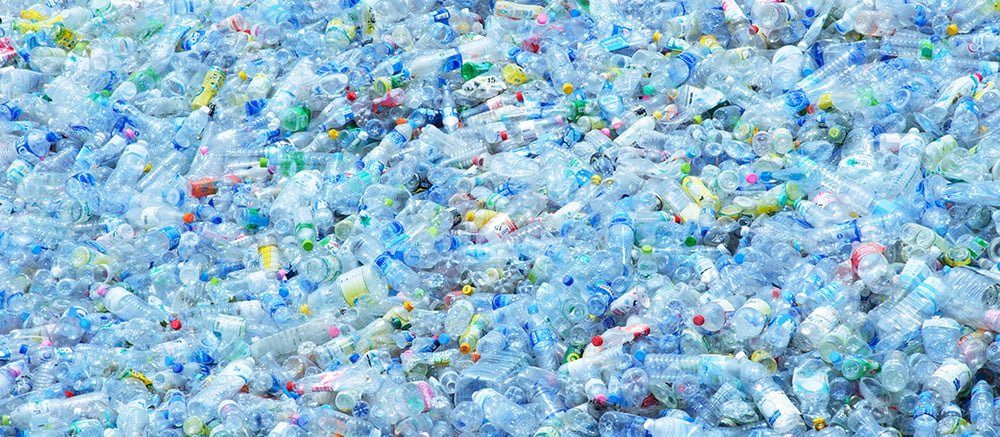A Million Bottles Per Minute

Annual consumption of plastic bottles is predicted to reach half a trillion by 2021, exceeding current recycling efforts and jeopardising oceans, coastlines and other environments.
Over 1 million plastic bottles are bought around the world every minute and it’s not slowing down. Plastic bottle consumption is expected to increase by another 20% by 2021 creating an environmental crisis that some consider as serious as climate change.
This demand is thought to be driven by an insistent need for bottled water and the spread of an “on the go” culture to China and the Asia Pacific region.
Over 480 billion plastic drinking bottles were sold across the world in 2016, around 300 billion more than in 2006. According to the most recent estimates from Euromonitor International global packaging trends report, this will increase to 583 billion by 2021.
Most plastic bottles used for water and soft drinks are made from Polyethylene terephthalate (PET), which is highly recyclable. However, as their use increased around the world, efforts to collect and recycle these bottles are failing to keep up, and as a result, they end up in the oceans and landfill. In fact, less than half of the bottles bought in 2016 were collected for recycling and just 7% of those collected were turned into new water bottles.
Plastic in the Ocean
Between five million and thirteen million tonnes of plastic spills into the world’s oceans every year and ends up being ingested by sea birds, fish and other organisms. According to the Ellen MacArthur Foundation, it is expected that by 2050, the ocean will contain more plastic by weight than fish if this is to continue.
Some of this plastic has already found its way into our food chain. Scientists at Ghent University in Belgium have calculated that people who eat seafood ingest up to eleven thousand pieces of plastic every year and studies at Plymouth University showed plastic was in a third of UK-caught fish including cod, haddock, mackerel and shellfish.
Who is Responsible?
Major drinks brands produce the most plastic bottles. Coca-Cola produces more than 100 billion throwaway plastic bottles every year according to studies by Greenpeace, and the top six drinks companies in the world use a combined average of just 6.6% of recycled PET in their products.
Plastic bottles could be made from 100% recycled PET (rPET) and campaigners are pushing for this, but drinks brands are reluctant because they want their products in clear, shiny bottles.
Evidence also shows that making bottles from 100% rPET uses 75% less energy than making new ones. However, no one is forcing companies to change their methods and it is left to the brands to decide how much recycled plastic they are willing to use.
Time for Change
While the production of throw-away plastic has increased over the last twenty years, the systems to contain, control, reuse and recycle haven’t kept up. Plastic is found in abundance on even the most remote islands and is already overrunning some of the UK’s most beautiful beaches and coastlines.
Many activists are calling for change and are campaigning for ways to reduce plastic consumption. Some call for a circular economy in which plastic bottles are reused, rather than recycled, while others are pushing for deposit schemes and taxes or charges – similar to the 5p charge plastic bags.
It is clear that the soft drink industry needs to reduce its plastic footprint and that recycling systems need to be upscaled to meet demand. Unfortunately, we are in a position where we not only need to deal with new plastic, but we need to clean up the damage caused by existing waste plastic too.
Plastic waste gets a lot of media coverage and, as a result, many organisations are beginning to find ways to reduce and recycle. Big chains are pushing to mitigate the use of plastic packaging, while others, such as Pilot with their new B2P (Bottle to Pen) gel pen, are using recycled material to produce new products.
Other organisations, such as The Ocean Cleanup, a non-profit organisation that is developing advanced technologies to rid the ocean of plastic, are developing methods to clear up the plastic that already pollutes the oceans and beaches.
It’s clear that we all need to make an effort to reduce our plastic footprint and support those that are trying to make a difference.